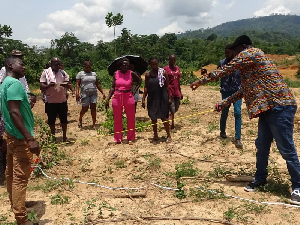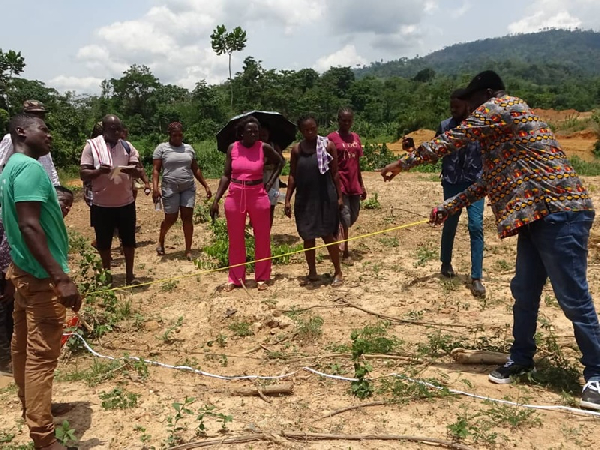 The training which took place in Sagyemaase in the Abuakwa-South District
The training which took place in Sagyemaase in the Abuakwa-South District
Indigenes of Sagyemaase, Atewa, and surrounding communities in the Eastern Region have undergone comprehensive training in land reclamation as part of efforts to empower them with the skills necessary to combat land degradation.
A capacity-building workshop was held to equip locals and advocate for their leadership in the land rehabilitation process, aiming to restore the environment ahead of the anticipated bauxite mining activities in the community.
The training, which took place in Sagyemaase in the Abuakwa-South District of the Eastern Region, brought together a variety of stakeholders, including traditional leaders, assembly members, opinion leaders, and residents. Similar workshops have already been held in Nyinahin and Awaso.
Abu Karim, Chief Executive Officer (CEO) of Settle Ghana, the organizers of the workshop, emphasized that it was time to advocate for and build the capacity of the local community to lead the mining process. He explained that locals must be well-positioned to reclaim the land after mining companies conclude their activities.
Karim noted that, over the years, many mining companies have failed to rehabilitate mined areas, leading to significant environmental damage.
He stressed that the workshop was in line with current international standards, which place the responsibility of land reclamation on both the locals and the mining companies operating in the area.
To ensure the indigenes are properly equipped, the workshop provided the necessary skills and knowledge required to carry out reclamation projects effectively.
Mr. Karim expressed concern about the tendency of mining companies to engage with local communities without following through on necessary actions. Settle Ghana is prioritizing the active involvement of indigenous people in leading the land reclamation and rehabilitation efforts.
He also shared his excitement about the enthusiasm shown by participants in the Atiwa catchment area during the training, expressing hope that their commitment will contribute significantly to fulfilling the goal of having indigenous people lead the mining rehabilitation conversation.
Participants, in separate interviews, condemned the current situation, where mining entities engage with locals but fail to make any substantial progress in addressing the issues. They argued that locals should be given the opportunity to play an active role in these projects.
The indigenes also expressed concerns about the damaging effects of illegal mining and the extensive destruction of the environment, particularly their forest reserves.
Reflecting on the past, they reminisced about the once-pristine environment and clean air they enjoyed. They hope the new project will come to fruition, allowing them to contribute to the reclamation of their environment and restore it to its former glory.


